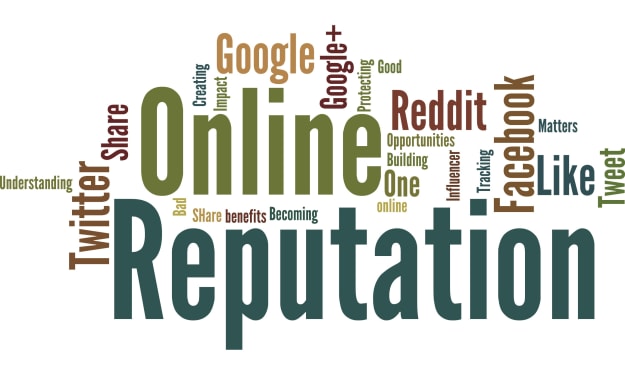The Reality of Magic Spells
An Exploration of Their Efficacy

Magic spells, enchantments, and rituals have captivated human imagination for millennia. From ancient civilizations to contemporary societies, the allure of influencing the world through supernatural means persists. The concept of magic spells, in particular, intrigues many: Do they actually work, or are they merely the product of cultural myth and personal belief? This article explores the history, mechanisms, psychological impacts, and scientific perspectives on the efficacy of magic spells, offering a comprehensive look at this enduring phenomenon.
Historical Context of Magic Spells
Magic, in various forms, has been an integral part of human culture since prehistoric times. Early humans sought to understand and control their environment through rituals and spells, invoking supernatural forces to ensure success in hunting, healing, and fertility. The ancient Egyptians, Greeks, and Romans developed intricate systems of magic, with spells and rituals to appease gods, protect against evil, and influence the outcomes of events.
In the Middle Ages, the practice of magic became intertwined with religion and alchemy. European witches and sorcerers were believed to wield spells that could heal or harm, leading to the infamous witch hunts. In contrast, other cultures, such as those in Africa, the Americas, and Asia, maintained their own magical traditions, often integrating them into everyday life and spiritual practices.

Mechanisms of Magic Spells
Magic spells typically involve a combination of words (incantations), actions (rituals), and symbolic objects (talismans, herbs, crystals). The core belief is that these elements, when combined correctly, can influence the natural or supernatural world to achieve a desired outcome.
Incantations: Words are believed to hold power. Chanting or speaking specific phrases can supposedly invoke supernatural forces or energies. The precise wording, language, and intonation are often crucial to the spell's success.
Rituals: Actions performed during a spell, such as lighting candles, drawing symbols, or making offerings, are meant to align the practitioner's intentions with the desired outcome. Rituals often follow a specific sequence and may be conducted at particular times (e.g., phases of the moon) to enhance their potency.
Symbolic Objects: Items like crystals, herbs, and talismans are believed to possess inherent magical properties. These objects are often used to focus energy and intentions, acting as conduits or amplifiers of the spell's power.
Psychological Impact and the Power of Belief
One of the most compelling arguments for the efficacy of magic spells is the psychological impact they have on practitioners and recipients. The placebo effect, a well-documented phenomenon in medicine, demonstrates that belief and expectation can significantly influence outcomes. When individuals believe in the power of a spell, their mindset and behaviors may change in ways that help manifest the desired result.
Confidence and Empowerment: Believing in a spell can boost confidence and self-efficacy. This psychological uplift can lead to proactive behaviors and decision-making that contribute to achieving the intended outcome.
Stress Reduction: Rituals and spells often provide a structured way to cope with uncertainty and anxiety. The act of performing a spell can be calming and meditative, reducing stress and promoting mental clarity.
Focus and Intent: Spells require clear intentions and focus. By articulating and concentrating on a specific goal, practitioners may be more likely to notice and seize opportunities that align with their desires.
Scientific Perspectives on Magic Spells
From a scientific standpoint, the efficacy of magic spells is generally viewed with skepticism. There is little empirical evidence to support the idea that supernatural forces can be manipulated through words, actions, or objects. However, science does recognize the powerful role of the human mind in shaping perceptions and experiences.
Placebo Effect: As mentioned earlier, the placebo effect illustrates how belief can lead to real, measurable changes in health and behavior. While this effect does not prove the supernatural efficacy of spells, it does highlight the significant influence of belief and expectation.
Psychosomatic Responses: The mind-body connection is well-documented in psychosomatic medicine. Beliefs and emotions can affect physical health, suggesting that spells might induce real changes through psychosomatic pathways.
Confirmation Bias: Humans tend to notice and remember events that confirm their beliefs while disregarding those that do not. This bias can create the illusion that spells are effective, as individuals may selectively recall instances where outcomes aligned with their intentions.
Case Studies and Anecdotal Evidence
Despite the lack of scientific validation, countless anecdotal reports suggest that magic spells have worked for individuals. These stories often involve personal experiences where spells are credited with bringing love, success, healing, or protection. While anecdotal evidence is not scientifically reliable, it does offer insight into the human experience of magic.
Love Spells: Many people claim that love spells have helped them attract romantic partners or rekindle relationships. These spells often involve rituals to enhance personal magnetism and emotional connection.
Protection Spells: Protection spells are used to ward off negative energies, harm, or misfortune. Practitioners report feeling safer and more secure, attributing their well-being to these magical practices.
Healing Spells: In various cultures, healing spells are performed to cure ailments or accelerate recovery. While modern medicine often views these as complementary or placebo treatments, they are deeply valued in traditional healing practices.
Ethical Considerations and Responsible Practice
The practice of magic spells raises several ethical considerations. Intentions behind spells can vary widely, and the impact on others must be considered.
Consent and Harm: Performing spells on others without their knowledge or consent can be ethically questionable, especially if the intention is to manipulate or control. Harmful or coercive spells violate principles of autonomy and respect.
Cultural Appropriation: Using spells and rituals from cultures outside one's own without understanding or respecting their context can be seen as cultural appropriation. It is important to approach such practices with sensitivity and awareness.
Psychological Dependency: Over-reliance on spells and magical thinking can lead to psychological dependency, where individuals neglect practical actions and decision-making in favor of supernatural solutions.
Conclusion: The Balance Between Belief and Skepticism
The question of whether magic spells work does not have a straightforward answer. The efficacy of spells can be viewed through various lenses: historical, psychological, cultural, and scientific. While there is little empirical evidence to support the supernatural claims of magic, the psychological and cultural impacts are undeniable. For many, the practice of magic spells provides a sense of control, empowerment, and connection to something greater than themselves.
In the end, the power of magic spells may lie less in their ability to alter the external world and more in their capacity to transform the internal experiences of those who believe in them. Whether seen as a spiritual practice, a psychological tool, or a cultural tradition, magic spells continue to hold a significant place in human society, reflecting our enduring desire to shape and understand the world around us.
This exploration underscores the importance of balancing belief with skepticism, acknowledging the profound impact of the human mind while remaining critical of unfounded claims. As with many aspects of life, the truth about magic spells likely resides in the complex interplay between perception and reality, belief and evidence.
About the Creator
Beauty Lovery
https://premium.chat/beauty258
Enjoyed the story? Support the Creator.
Subscribe for free to receive all their stories in your feed. You could also pledge your support or give them a one-off tip, letting them know you appreciate their work.






Comments
There are no comments for this story
Be the first to respond and start the conversation.